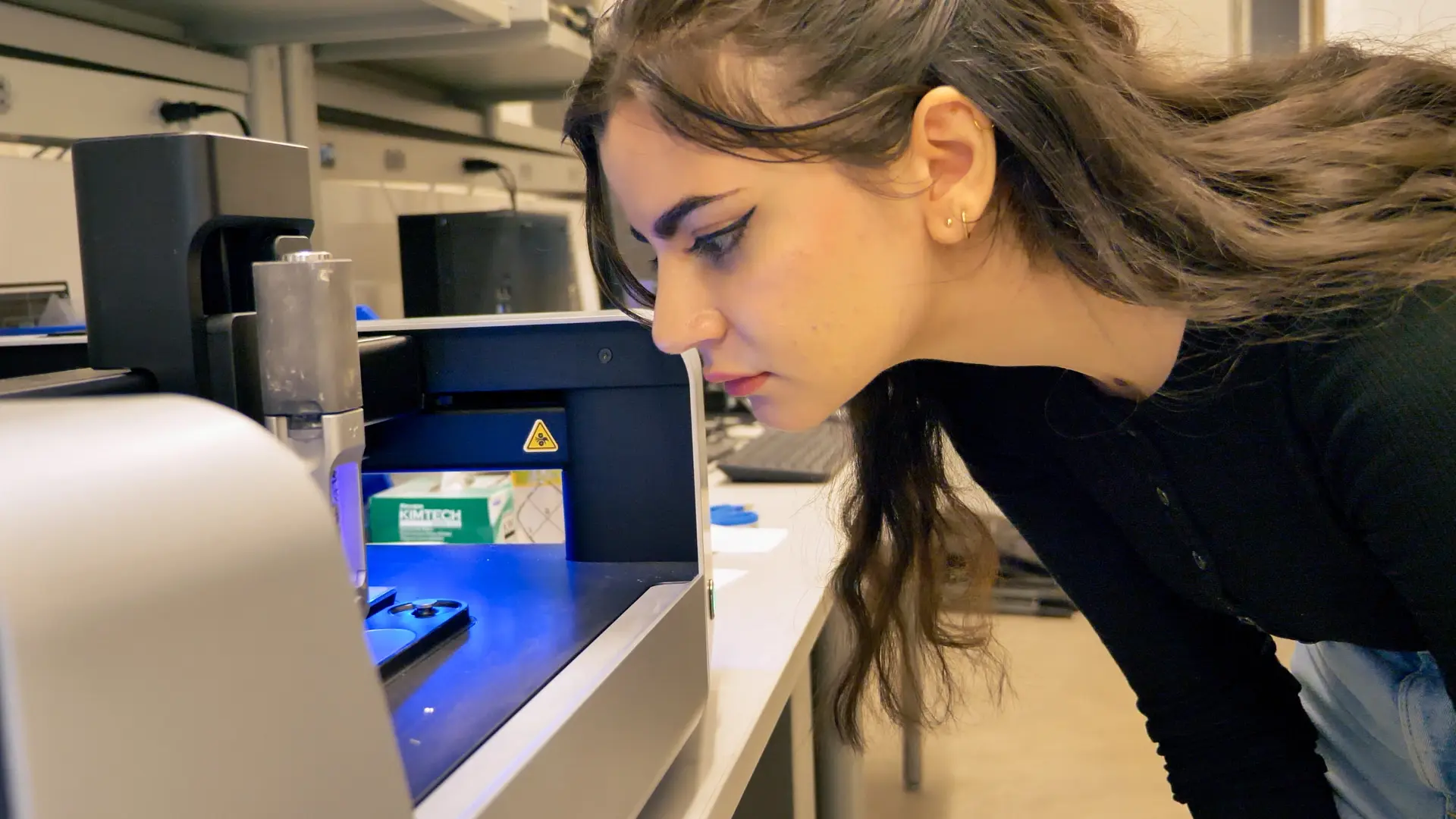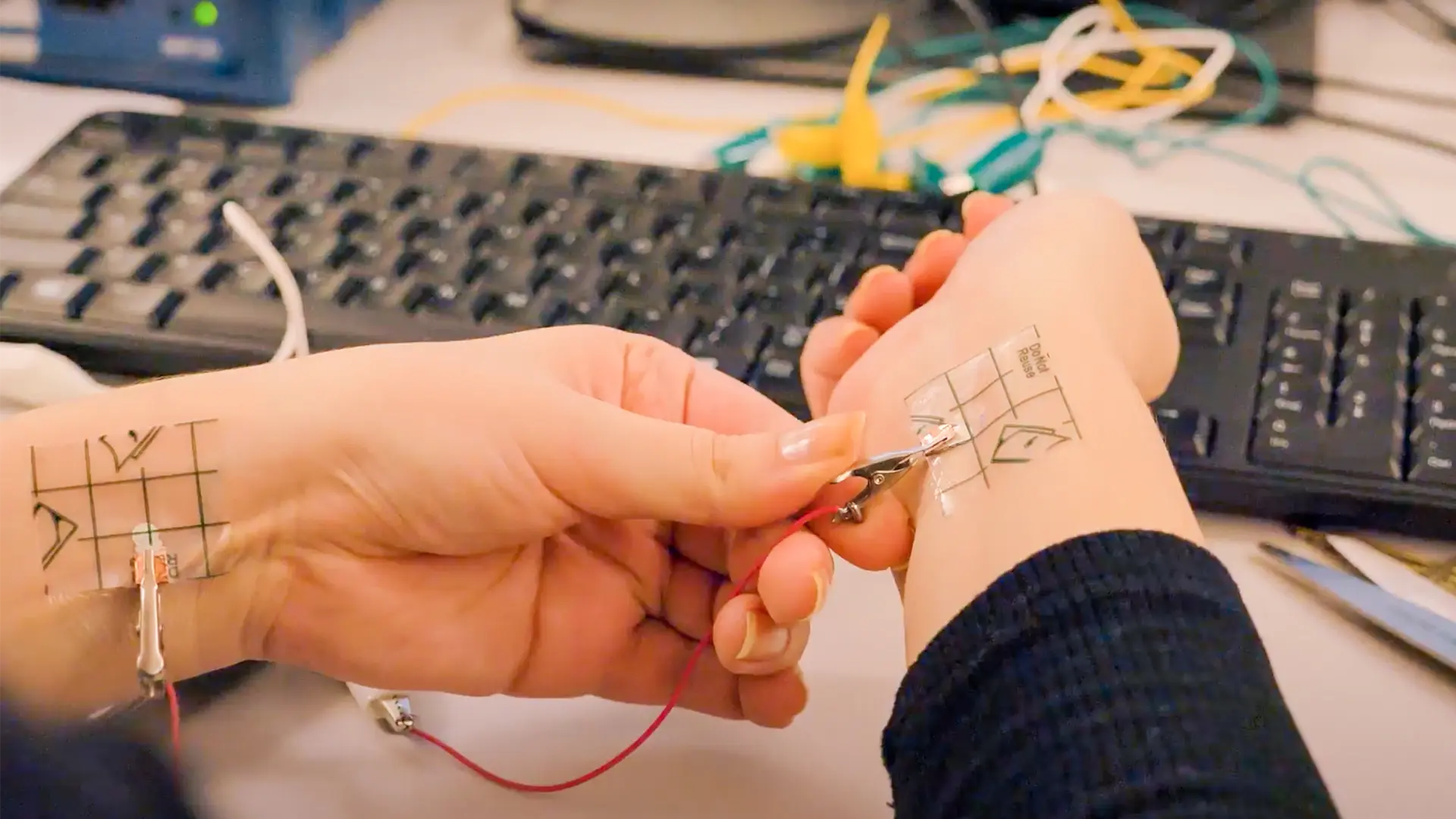Webinar Recap: Printing Electronics with Flexible Inks
In this webinar, we hosted Andrew Bambach, Engineering Manager at ACI Materials, to explore cutting-edge advancements in printed electronics, focusing on flexible conductive inks and their transformative applications.
Announcements
During the webinar, our Support Lead, Nathan Shinkar, unveiled our new electronics printing service. You can now outsource your novel electronics designs for cost-effective, precise prints without minimum order quantities. In addition, we have added more inks to our store. Because these inks cater to niche applications with smaller quantity requests, please inquire through the store to see if we have them in stock.
Webinar highlights
Overview of ACI’s Alchemy inks
Andy introduced ACI’s Alchemy ink series, emphasizing their unique semi-sintering technology that combines high conductivity (4–5 times better than polymer thick films) with low-temperature curing.
Key innovations of the Alchemy line include:
- Cavitation process: A manufacturing method, proprietary to ACI Materials, which uses vacuum bubbles to disperse particles without damaging morphology, ensuring stable, clog-resistant inks
- Stretchable carbon ink SC1502: An ink optimized for demanding applications such as wearables, offering flexibility under strain
- Fine feature printing: 20 μm traces (comparable to etched copper) for transparent metal meshes are achievable
- Environmental edge: The Alchemy line reduces reliance on copper etching, slashing toxic waste, and enabling eco-friendly additive manufacturing
Andy also introduced a circuit with fine traces printed with ACI’s FS0117 Semi-Sintering Ink on Voltera’s NOVA materials dispensing system to accommodate the world’s smallest 555 timer.


Live demonstration: Printing stretchable inks with NOVA
Nathan demonstrated printing ACI’s stretchable carbon ink SC1502 on PET using a Nordson EFD 7018395 200 μm dispensing tip on NOVA.
The process included:
- Probing: NOVA probed the PET substrate and created a height map to ensure precise ink deposition.
- Adjusting print settings: Nathan adjusted trace width, print height, and temperature for uniform traces.
- Calibrating the ink: NOVA printed the calibration pattern, taking a picture with the built-in camera and guiding Nathan to improve the print results


Q&A
The webinar wrapped up with a Q&A session where participants asked about multilayer printing, curing conditions, conductivity, and material compatibility. Key insights included:
- Current handling: Alchemy traces support 1–2 amps for bus lines and about 0.5 amps for wearables (e.g., 40mm × 7mm traces).
- High-frequency circuits: Smooth topography and high conductivity make Alchemy inks ideal for antenna applications.
- Curing and development: Developmental inks cure at 120°C (2–3 minutes in ovens), with ongoing R&D to boost conductivity at lower temperatures.
- Ink compatibility: NOVA handles viscosities from 1,000 to 1,000,000 cPs. For custom inks, we recommend prioritizing consistent particle size to avoid nozzle clogs.
Additional resources
Want to learn more about flexible inks and projects completed using flexible inks? Check out these resources:
- Blog: The Ultimate Guide to Choosing Materials for a New Electronics Product
- Blog: Ask an Expert: Talking Conductive Ink with Mike Mastropeitro from ACI
- White paper: Printing a Flexible PCB with Silver Ink on PET (stretchable insulator)
- White paper: Printing Silver Conductive Ink on Cotton Fabric (stretchable heating ink)
Looking to print flexible electronics with flexible inks? Book a meeting to learn more about NOVA.

Check out our Customer Stories
Take a closer look at what our customers are doing in the industry.
